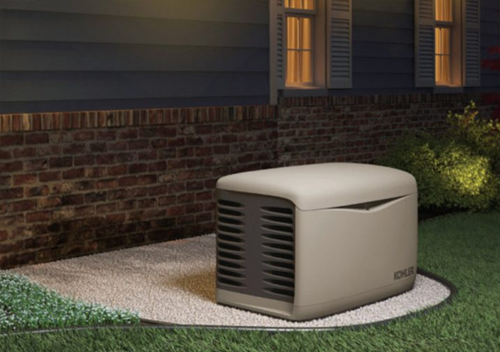
Generators are invaluable assets, providing much-needed power during outages and ensuring that homes remain comfortable and operational. However, like any mechanical device, generators can experience issues that hinder their performance. Understanding common generator problems and how to address them can save you time, money, and frustration. In this blog post, we’ll explore some frequent generator issues homeowners encounter and offer practical solutions for each.
1. Generator Won’t Start
One of the most common complaints among generator owners is that their unit won’t start when needed. This can be both frustrating and concerning, especially during an outage.
Possible Causes:
- Dead Battery: Over time, batteries can lose their charge, especially if the generator isn’t used regularly.
- Fuel Issues: Old, stale fuel or empty tanks can prevent the engine from starting.
- Faulty Starter Motor: A malfunctioning starter motor may fail to engage the engine.
Solutions:
- Battery: Check the battery connections and recharge or replace the battery if it’s dead. Clean any corrosion from terminals.
- Fuel: Ensure the gas tank is filled with fresh fuel. If the fuel has been sitting for more than 30 days, consider replacing it and adding a fuel stabilizer.
- Starter Motor: Inspect the wiring and connections to the starter motor. If it’s unresponsive, consult a professional for repair or replacement.
2. Low or Dirty Oil Levels
Maintaining proper oil levels is crucial for the smooth operation of your generator. Low oil levels can lead to overheating and engine damage.
Possible Causes:
- Regular use without oil changes can lead to dirty or insufficient oil levels.
- Leaking oils from older generators may deplete oil reserves quickly.
Solutions:
- Check Oil Levels: Periodically check your oil level using the dipstick. If it’s low, add the appropriate oil type as specified in your user manual.
- Change Oil: Follow the manufacturer’s recommendations for oil changes, typically every 50-100 hours of operation. Use high-quality oil and replace the oil filter.
3. Clogged Air Filter
A clogged air filter can restrict airflow to the engine, reducing performance and potentially causing the generator to stall or run inefficiently.
Possible Causes:
- Dust, dirt, and debris can accumulate over time, especially in environments with heavy dust or pollen.
Solutions:
- Inspect the Air Filter: Open the generator and check the air filter for dirt and obstructions.
- Clean or Replace: If the filter is dirty, clean it according to the manufacturer’s guidelines. If it’s heavily soiled or damaged, replace it with a new one.
4. Generator Overheating
Generators can overheat due to various factors, leading to reduced efficiency and potential damage if not addressed promptly.
Possible Causes:
- Insufficient oil or coolant levels can cause overheating.
- Blockages in ventilation can restrict airflow, leading to heat buildup.
Solutions:
- Check Fluid Levels: Ensure that both oil and coolant levels are adequate. If necessary, refill or replace fluids.
- Inspect Vents: Clear any debris or blockages obstructing air vents and ensure that the generator has adequate ventilation.
5. Inconsistent Power Output
Inconsistent power supply can cause frustration, especially if the generator trips or fails when trying to power essential appliances.
Possible Causes:
- Overloading the generator by connecting devices that exceed its rated capacity.
- Electrical issues stemming from deteriorating connections or damaged wiring.
Solutions:
- Avoid Overloading: Ensure that the combined wattage of devices connected to the generator does not exceed its rated output. Disconnect any devices until the load is within limits.
- Check Wiring and Connections: Inspect electrical connections for signs of wear, corrosion, or damage. Tighten loose connections and replace any damaged wires.
6. Fuel Leaks
Fuel leaks can pose safety hazards and may indicate underlying problems with your generator’s fuel system.
Possible Causes:
- Deteriorated fuel lines or seals can lead to leaks.
- Problems with the fuel tank or carburetor can also cause leakage.
Solutions:
- Inspect for Leakage: Regularly check fuel lines, connections, and the fuel tank for any signs of leakage.
- Repair or Replace Parts: If you discover a leak, tighten connections or replace damaged fuel lines. Consult a professional if necessary.
Conclusion: Stay Prepared with Proactive Maintenance
Understanding common generator issues and their solutions can help homeowners take proactive measures to keep their generators in good working order. Regular maintenance and timely repairs are crucial for ensuring your generator is fully operational when needed. By practicing good upkeep and addressing issues swiftly, you can enjoy the peace of mind that comes with knowing you’re prepared for any power outage.
Have you experienced any generator issues that required fixing? Share your experiences and tips in the comments below! Don’t forget to share this guide with fellow homeowners who may benefit from this knowledge!
continue reading
Related Posts
In our increasingly power-dependent world, generators play a crucial role […]
Generators are essential for providing backup power during outages, but […]
Power outages can happen anytime, and their impact can range […]



